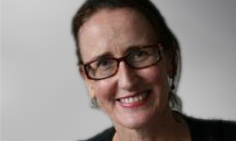ON the day of a planned family picnic, an 84-year-old woman shoots herself three times because she cannot see any other way to escape the demands of caring for her 86-year-old husband.
After the unsuccessful suicide attempt, she tells doctors she has been planning this desperate action for 2 years, saying “I could not stand another 24 hours”.
Family members say they had no idea how hard things had become: “She thought she was responsible to do … just about all of the caretaking”, one daughter says. “They did the parent thing of don’t worry the kids about how bad off maybe Dad is, or how she was feeling …”
An extreme case perhaps, but this story told in JAMA last week does highlight the relentless pressure caring for an elderly or disabled relative can impose.
A 2007 study commissioned by Carers Australia found carers had the lowest wellbeing of any group studied, lower than the unemployed and than those living on less than $15 000 a year.
Around 56% of the 4000 carers responding to the survey were found to have moderate or more severe depression, as measured by the Depression, Anxiety and Stress Scale (DASS).
When a caregiver is struggling, this can put not only their own health at risk but also that of the person they care for, yet the JAMA authors argue caregiver needs are often overlooked by treating doctors.
The elderly lady whose story they tell often accompanied her husband to his medical appointments but did not have her own doctor or attend any appointments for her own medical needs.
“Physicians must recognize the importance of family caregiving since the health of their patients depends on the quality of home-based caregiving”, they write.
“They should engage family caregivers as proactive partners in care, be cognizant of caregiver burden, and intervene in a timely manner to help reduce this burden.”
That can be easier said than done, of course, especially if respite care or other services are not available or if the caregiver is reluctant to admit their need for help.
Addressing the health and wellbeing of caregivers is a task not just for doctors but for society as a whole, one that is only going to become more important as our population ages and we become ever more dependent on this unpaid workforce.
Already, the bulk of caregiving in this country is provided by generally untrained family members, often without adequate support.
The Australian Bureau of Statistics says around 2.7 million Australians were unpaid carers in 2012 — a phenomenal 12% of the population.
And, according to the ABS, 37% of primary carers themselves have a disability, compared with only 16% of those in other households.
The JAMA authors also cite studies showing that caregivers often have chronic medical conditions, neglect their own health and are less likely than others to engage in preventive health measures.
This is not just a question of compassion, but one of financial pragmatism.
An Access Economics report, also commissioned by Carers Australia, estimates the value of the work done by our unpaid caregivers at more than $40 billion a year.
If we don’t want that cost added to the federal budget, we need to make sure we take care of the carers.
Jane McCredie is a Sydney-based science and medicine writer.

 more_vert
more_vert
Jan McCredie comments on a spectacular tragedy that highlights a well-entrenched and well-researched problem. While there is some value in reminding one another of the carer burden that our society tolerates, we suggest that it’s not enough. Yes, carers do face the risk of censure if they “complain” about their circumstances, but as health professionals, family members and neighbours, we can each start helping to change that perception in our interactions within the caregiving circles we already know. Another practical step we can take is to encourage carers to use a simple self-completed tool for reflecting on their needs then use it in a consultation with their GP – who can still treat carers as patients in their own right. This will provide an opportunity to affirm to carers that their needs are valid and to initiate tailored support. The tool and complementary resources are freely accessible via the CareSearch website:
http://www.caresearch.com.au/caresearch/tabid/1643/Default.aspx
http://www.caresearch.com.au/caresearch/tabid/1169/Default.aspx
GPs may also be interested to browse the GP Hub on the CareSearch website.
Letitia Burridge, Geoff Mitchell & Jennifer Tieman.
I refer to the poll results here regarding the “burden of care” for family mambers. I am surprised by the apparent lack of insight or perhaps at the poorly worded poll options. Acting as a carer for a family member comes in many unseen ways. As demonstrated here, these ways are often unrecognised by the family doctor. Maybe the family doctor doesn’t even inquire. Some serious food for thought.
Apart from being a doctor, I am also the parent of a young woman with severe cerebral palsy. She lives at home with the family, with a bunch of carers that attend our house. One of my close friends, also a health professional, cares for her demented mother at home. I love my daughter and my friend loves her mother. We want to see them happy and engaged in life going on around them. We save the government a fortune by doing what we do.
The thing that we need most is generous and flexible provision of respite care, so that we can work in our jobs, see a movie, have dinner with friends, or even go on a holiday. These are our necessities of life so that we can carry on, knowing that if we want to step out, we can, and our family member will be safe and happy.